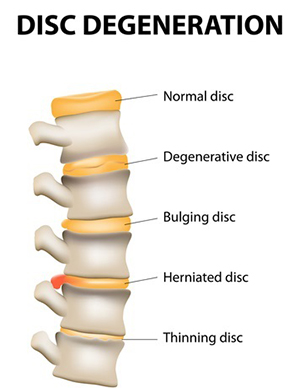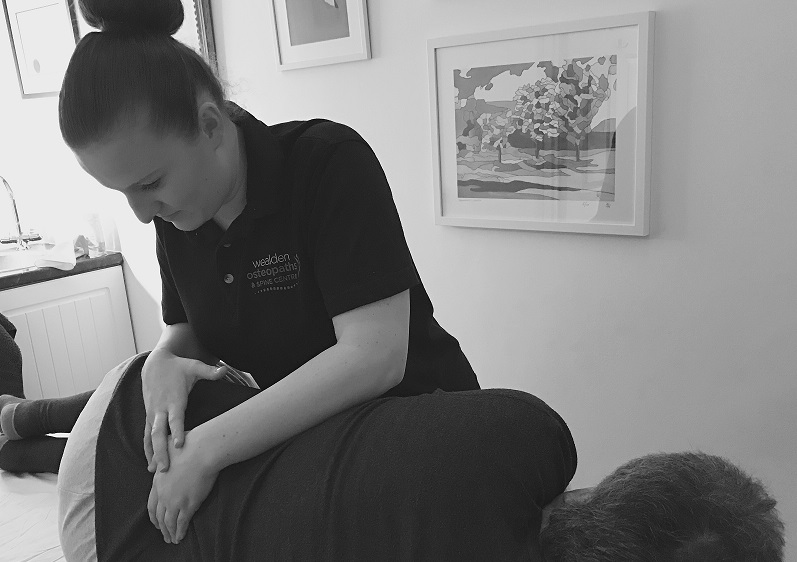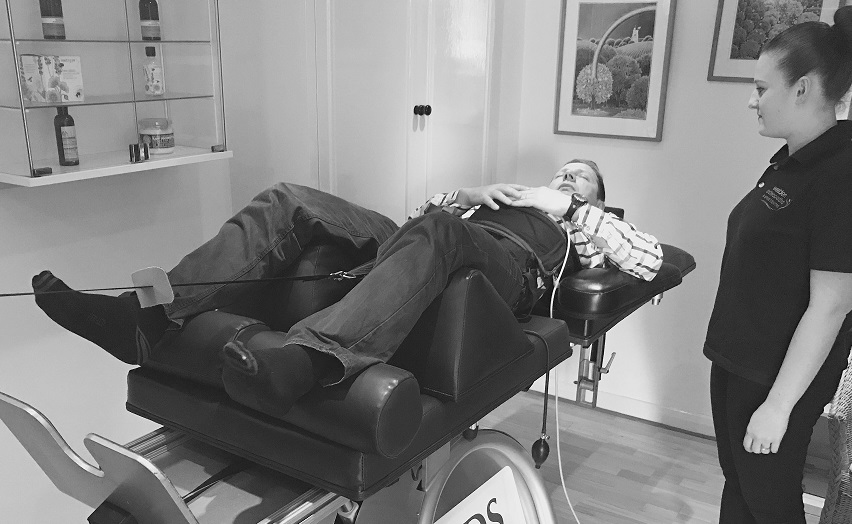When it comes to back and neck pain, we know how a serious disc condition can stop you in your tracks. The agony and lack of movement can overwhelm you and prevent you from going about your normal daily activities.

The discs are the protective pads of connective tissue dividing the bones of the spine - our ‘shock absorbers’ which protect the spine when we move around. When these are under stress or become damaged, they can cause the vertebral bones to rub together and compress or irritate surrounding nerves: very painful indeed!
Naturally, persistent pain can affect you emotionally and when manual therapy isn’t working and painkillers are having a limited effect, you might feel like you’ve run out of options.
The good news is, whatever your disc condition, you’ve come to the right place for help.
As a specialist disc clinic, we have experienced hands-on clinicians and the latest technology in spinal mobilisation: IDD Therapy disc treatment. Our experts treat all manner of conditions from bulging discs to prolapsed, herniated or ‘slipped’ discs and Degenerative Disc Disease - all non-invasively.
When you come to us with a disc problem, our aim is to:
If you’ve slipped a disc, typically you’ll experience episodes of back or neck pain which become more frequent over time. You may also suffer nerve pain in the arms or legs (sciatica) or headaches. You’ll probably need daily painkillers. Manual treatments like physiotherapy and even spinal injections may not help you.
In addition to back pain, neck pain and associated nerve pain, your condition may be:

Typically, people with a disc condition have had episodes of pain which become more frequent over time. However, for a few, the pain and immobility has seemingly come from nowhere. In reality, the stress on their spine could have been causing damage for some months or even years without them experiencing any symptoms.
Unfortunately, many disc issues are caused by our own bad habits - which if left unchecked, can turn into more serious issues. They’re often triggered by everyday activities such as:

When the spine is put under this kind of repetitive strain over a period of time, it can cause damage or degeneration of the spinal discs and surrounding nerves.
If we’re on our feet all day, sitting at workstations or lifting heavy objects, the spine can gradually weaken, causing discs to stretch and bulge.
Bulging discs are harmless for most people and don’t cause them any pain – BUT, if the outer wall of the disc tears, the gel-like inner part can leak out onto surrounding nerves – and that’s when you’re likely to feel pain and unable to move as freely.
Depending on the level of damage, we might say the disc has prolapsed, herniated or ‘slipped’.
When a disc herniates, the inner gel-like nucleus can leak out, irritating or compressing the surrounding nerves. In lower back patients, the sciatic nerve is affected with a grinding or shooting pain travelling from the buttock down the length of the leg. Sometimes the pain is accompanied by tingling, numbness or weakness in the legs and feet. In neck pain sufferers, nerve pain affects the shoulders, arms and hands.
If the discs dehydrate and lose height, they can cause severe pain when the vertebral bones rub against each other.

When you come to see us, we’ll listen to you, find the root cause of your pain and explain in simple terms how we can help.
During your first visit, we’ll take a history of your symptoms, review any MRI scans and carry out a set of physical tests to find out how your pain and immobility affects you. We treat a range of disc conditions and use a variety of non-invasive techniques, but for long-term sufferers who need more than manual therapy, we offer the latest technology in spinal mobilisation: IDD Therapy disc treatment.

IDD Therapy uses gentle pulling forces to draw apart specific spinal segments where discs are damaged.
This is particularly effective for disc-related nerve pain in the arms or legs, since opening the disc space helps to dilute any inflammatory toxins which might be causing irritation to the surrounding nerves whilst also relieving pressure from them.
Our IDD patients enjoy their treatment sessions; most say they find them relaxing and soothing. For some, IDD Therapy is an effective alternative to invasive procedures; many have avoided spinal surgery with the treatment programme.
My life came to a standstill with agonising back pain... but now I'm back to health after IDD Therapy
Property Investor, Jane Kent had never had a back problem before, but last year her life was suddenly put on hold by debilitating pain and immobility.
Back pain and sciatica ruled my life for 16 years... but now I'm running again thanks to IDD Therapy
Sue James is a retired tailor and keen track-and-field athlete, but not long ago, excruciating back pain and sciatica threatened to put an end to her beloved sports forever.